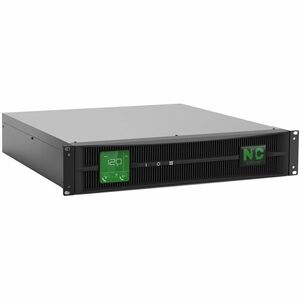Introduction
Uninterruptible Power Supply (UPS) systems are crucial for maintaining uptime and protecting IT infrastructure from power disruptions. However, choosing the right battery type for your UPS can be overwhelming due to the numerous variables involved. In this blog, we'll compare the three main types of batteries used in UPS systems: Lead-Acid, Lithium-Ion, and Sodium-Ion. We'll detail their use cases, lifespan, power capacities, costs, charging times, sizes, and weights, ultimately showing why Lithium-Ion batteries are the best option.
Overview of Battery Types
Batteries come in various types, each with unique properties that suit different needs. Here's a quick look at the most common battery types:
Lithium-Ion: Known for high energy density, making them efficient for portable electronics.
Nickel-Metal Hydride (NiMH): Offers improved safety over older technologies, ideal when reliability is a priority.
Lead-Acid: A cost-effective solution for large-scale storage, though bulkier and heavier.
Use Cases
Selecting the right battery type is crucial for optimal performance in specific applications. Below are common use cases for each type:
Lithium-Ion: The go-to choice for consumer electronics and electric vehicles due to its efficiency and compact size.
Lead-Acid: Widely used in automotive sectors and backup power systems because of its reliability and cost-effectiveness.
NiMH: Frequently used in hybrid vehicles and rechargeable consumer products where safety and longevity are essential.
Lifespan and Reliability
Battery lifespan is a critical consideration, often measured in charge cycles. Here's a comparison of the expected lifespans:
Lithium-Ion: Typically lasts between 500-1,000 cycles, with technology supporting extensive charge monitoring for extended life.
NiMH: Provides around 500 cycles, making it a durable choice for consistent use.
Lead-Acid: Offers 200–300 cycles but requires periodic maintenance to ensure longevity.
Power Capacities and Deliveries
The capacity and efficiency of power delivery are vital for meeting energy needs:
Lithium-Ion: Packs high capacities in compact sizes, delivering consistent power crucial for portable electronics.
Lead-Acid: Though larger, it provides sustained power delivery suitable for backup systems.
NiMH: Offers moderate capacities, fitting well in devices that balance power needs with size constraints.
Cost Analysis
When analyzing costs, initial investments and long-term expenses should be considered:
Lithium-Ion: Though costly upfront, its longevity ensures savings over time.
NiMH: Offers a balance between performance and price, making it a viable middle-ground option.
Lead-Acid: Initially affordable, but may incur higher long-term costs due to more frequent replacements.
Charging Times
Understanding charging times enhances convenience and efficiency:
Lithium-Ion: Supports quick charging, often within a few hours, perfect for devices requiring frequent power-ups.
NiMH: Takes longer to charge, aligning with its stable and reliable energy release.
Lead-Acid: Features the slowest charging, which is adequate for applications where rapid recovery isn't essential.
Size and Weight
The physical dimensions of batteries significantly impact their usability in different scenarios:
Lithium-Ion: Offers the best size-to-energy ratio, ideal for compact and lightweight applications.
NiMH: Bulkier but suitable for medium-sized applications where weight is less of an issue.
Lead-Acid: Heaviest and best suited for stationary or low-mobility uses where size is a lesser concern.
Conclusion: Why Lithium-Ion Batteries Are the Best
N1 Critical Technologies (N1C) specializes in leveraging Lithium-Ion battery technology to offer superior UPS solutions. Here’s why Lithium-Ion batteries are the best option:
Longevity: With a lifespan of up to 15 years, Lithium-Ion batteries outlast both Lead-Acid and the emerging Sodium-Ion batteries.
Efficiency: Faster charging times and higher power densities mean better performance.
Cost-Effectiveness: Although they have a higher initial cost, their long-term savings make them more economical.
N1C’s Lithium-Ion battery-powered UPS systems ensure that clients across industries eliminate downtime and maximize productivity, making it a no-brainer choice for IT directors.
Explore N1C's Why N1C, About Us, Products, Industries, and UPS Help pages for more information.
For a reliable and enduring UPS solution, contact N1 Critical Technologies today. Contact Us or Find a Reseller to get started.



